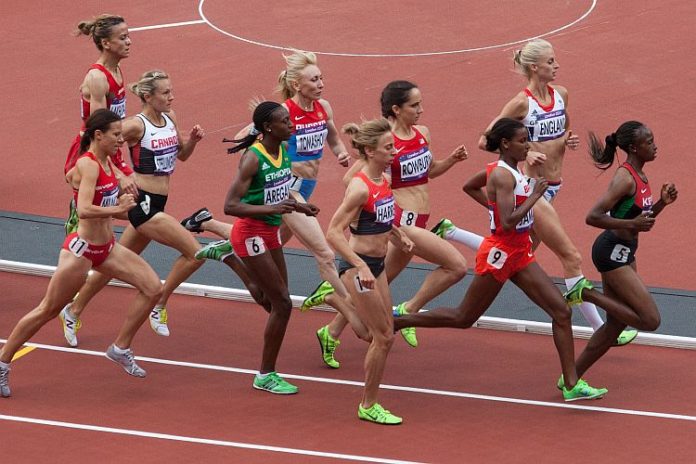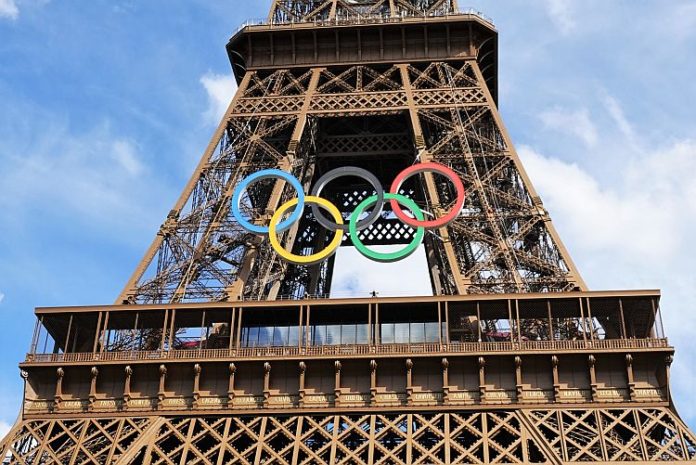★ The Sports Examiner: Chronicling the key competitive, economic and political forces shaping elite sport and the Olympic Movement.★
★ To get the daily Sports Examiner Recap by e-mail: sign up here! ★
≡ LONDON 2012 ≡
“The Sole Arbitrator in charge of the matter found to her comfortable satisfaction that Ms Tomashova committed an Anti-Doping Rule Violation (ADRV) in relation to the 2012 Samples through violations of Rule 2.2 of the 2021 [World Athletics] Anti-Doping Rules (WA ADR) (Use or Attempted Use of a Prohibited Substance or a Prohibited Method).
“Turning to the sanction, taking into account a previous ADRV committed by Ms Tomashova in 2008, the Sole Arbitrator determined the appropriate sanction applicable to multiple ADRVs to be the imposition a ten-year period of ineligibility, commencing on this day, the date of the CAS decision, as well as the disqualification of all competitive results obtained by Ms Tomashova from 21 June 2012 until 3 January 2015, with all resulting consequences, including the forfeiture of any titles, awards, medals, points and prize and appearance money.”
That’s from Tuesday’s Court of Arbitration for Sport announcement, in which Russian middle-distance star Tatyana Tomashova was disqualified from the London 2012 women’s 1,500 m, in which she is currently the silver medalist in one of the most drug-impacted races of all time.
By being disqualified, American Shannon Rowbury would advance to the bronze medal after originally finishing sixth.
Tomashova, now 49, was a major star at the beginning of the century, winning the IAAF women’s 1,500 Worlds golds in 2003 and 2005 and finishing with the Olympic silver at Athens 2004.
In London, she finished fourth on the track, behind Asli Cakir Alptekin (TUR), Gamze Bulut (TUR) and Maryam Yusuf Jamal (BRN). But Alptekin and Bulut were both later disqualified for doping, making Jamal the winner and Tomashova second, with Abeda Aregawi (ETH) in third. Rowbury was advanced to fourth.
Now, Tomashova’s disqualification, along with two other runners from Russia and Belarus, means that of the 13 finalists, five were disqualified for doping, including both Turkish finalists and both Russian finalists.
Rowbury, now 39, won the Worlds 1,500 m bronze in 2009 in Berlin and had been seventh at the 2008 Olympic Games in Beijing. She was later the American Record holder at 1,500 m, two miles and 5,000 m. She will now be the Olympic bronze winner in 2012, and she finished fourth at Rio 2016 in the women’s 1,500 m as well.
Any medal reallocation will have to be approved by the International Olympic Committee.
Tomashova’s case was pursued by the Athletics Integrity Unit, which re-tested her London 2012 samples in December 2021 and found her positive for anabolic steroids from tests in June and July of 2012. The pursuit of a judgement in the case was complicated by the continuing ban on the Russian Athletics Federation by World Athletics, but was finally delivered.
Because of Tomashova’s prior doping violation – for substituting urine samples – from 2008, which incurred a ban of two years and nine months (into 2011), the arbitrator agreed with a 10-year ban, and the loss of results from 2012 into 2015. Tomashova last results were from 2016.
Olympic super-statistician Dr. Bill Mallon noted:
● Eight of the 46 entrants in the London 2012 women’s 1,500 m have now been disqualified for doping.
● In conjunction with fellow stat star Hilary Evans (GBR), the numbers of Russians caught for doping violations at London 2012 is now 59 out of 429 athletes, or 13.8% of the total.
● Mallon and Evans have logged an all-time total of 515 doping offenses at the Olympic Games. Of those, Russia has 116 (22.5%), the most by far, “and equal to the total of the next 4 [National Olympic Committees] with the most – Ukraine, Belarus, USA, and Turkey (in that order).”
London 2012 is the worst Games in history for doping violations, with (now) 164. In addition to the on-site doping controls, samples are now frozen and stored for re-testing within 10 years. The International Testing Agency is now leading the re-testing effort for samples from Rio 2016.
¶
★ Receive our exclusive, weekday TSX Recap by e-mail by clicking here.
★ Sign up a friend to receive the TSX Recap by clicking here.
★ Please consider a donation here to keep this site going.
For our updated, 547-event International Sports Calendar for the rest of 2024 and beyond, by date and by sport, click here!


























